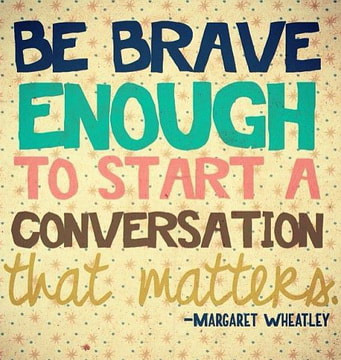|
Solidarity news and reflections of interest to the Passionist Family  Paul Wadell is Professor of Theology and Religious Studies at St. Norbert College in De Pere, WI, and a member of the Passionist JPIC Committee Has civic discourse become impossible? Are we so fragmented and polarized that common ground and consensus are "relics of a distant past? Writer and teacher, Paul Wadell, walks us through a hopeful challenge in this essay, with a lens on "civic friendship." Over the last few years—and particularly since the 2016 elections—many have noted that the country has never been so fragmented and polarized. If once we at least talked about finding common ground on urgent issues and reaching consensus on the challenges facing our communities, cities, states, and country, now it’s tempting to conclude there is no reason to even try. Politics as we once knew it—and perhaps still hope it can be—seems increasingly beyond us, more a relic of a distant past than a present aspiration. And even if we want to move beyond this depressing impasse, it is hard to muster hope when many of the people who are elected to represent us seem more concerned with thwarting the opposition and courting special interest groups than seeking the common good. Obviously, something must change because if it doesn’t the social fabric of our country will only continue to deteriorate. Something must change because there is nothing hopeful, nothing promising, and certainly nothing magnanimous about a political discourse that is characterized more by suspicion, mistrust, selfishness, and animosity than by good will, respect, generosity of spirit, and even charity. Something must change and, strangely enough, a way out of the mess in which we find ourselves may be through friendship. "Obviously, something must change because if it doesn’t the social fabric of our country will only continue to deteriorate. Something must change because there is nothing hopeful, nothing promising, and certainly nothing magnanimous about a political discourse that is characterized more by suspicion, mistrust, selfishness, and animosity than by good will, respect, generosity of spirit, and even charity. Something must change and, strangely enough, a way out of the mess in which we find ourselves may be through friendship." Paul Wadell  This sounds odd—perhaps hopelessly farfetched—because we commonly associate friendships with the more private and intimate relationships of our lives; in fact, we may see friendship as a welcome escape from the wearying problems of society, not as a key to overcoming them. But here we can learn from those who have gone before us. Philosophers such as Aristotle and Cicero, and theologians such as Augustine and Thomas Aquinas, were part of a tradition that understood friendship not only as a key personal relationship of our lives, but also as essential for how we envision our lives together socially and politically. They knew that because human beings are inescapably social—creatures that cannot go it alone—we need to learn how to live, cooperate, compromise, listen to and learn from one another in all the various settings of our lives, including our politics. They understood that we cannot flourish as human beings (much less enjoy a truly human existence together) without people who want what is best for us, share a vision of life, and ultimately agree on what matters most in life, which is exactly what friendship is. These qualities, they insisted, must characterize not only the closer relationships of our lives, but also our relationships with our fellow citizens, even those with whom we sometimes deeply disagree. Yes, we need close personal relationships with people who care about us and are devoted to our good. But we also, analogously, need to aspire to such relationships in the larger society because without them we lack the collective good will, trust, and sense of larger purpose on which healthy political communities depend. Therefore, one promising way to move beyond the factions, hardened disagreements, and paralysis in which our country so often now finds itself is by retrieving the idea of civic friendship. If, in general, friendship is a relationship characterized by mutual good will along with a shared commitment to actively work for another person’s good, there is no reason we cannot collectively strive to cultivate the same attitudes of benevolence and beneficence toward members of our society as a whole. When we do, we exemplify civic friendship because, insofar as possible, we extend to those more distantly removed from us, the kindly spirit, affection, and good will we have for our friends. The philosopher John M. Cooper, commenting on Aristotle, captures the core quality of civic friendship when he writes “that fellow citizens who are not otherwise personally connected ought nonetheless to be predisposed to like one another and to wish and do each other well.” In other words, civic friendship obliges us to behave towards others, Cooper says, “in a spirit not merely of rectitude (mere justice) but actually of friendship.” How could civic friendship renew our political discourse? How could it help us move beyond the dispiriting malaise in which we find ourselves? First, consider how friendships begin. Friendships are possible only when we are willing to open our lives to others. All our friends were once strangers to us and the only way they changed from being a stranger to becoming a friend is that, instead of closing ourselves off, we made space for them in our lives just as they did for us in theirs. Friendships—like society—require expansive hospitality and openness. Friendships—like society—require a steadfast willingness to open our lives to the “stranger” whose viewpoints, values, and beliefs may be very different from our own. Second, friendships create obligations because they require that we be concerned for and, at least to some degree, responsible for another’s well being. Friendships redirect our attention away from our self and our own good to another’s good. Similarly, with civic friendship, our attention is focused no longer exclusively on our private good or the good of our group, but on the common good. Third, civic friendship bonds us to people across society—across ethnic, religious, racial, and economic lines—because it reminds us that despite our many differences, there are deep human goods that join us together, crucial goods such as justice, respect for the dignity of all persons, care for the weakest and neediest among us, and peace. With civic friendship we see that we truly are responsible for one another. Perhaps Aquinas put it best when he wrote: “We must say therefore that great projects come out of concord and disintegrate through discord. Finally, true friendships are characterized by concord, the unity and peace that result when people are of one heart and mind about things that truly matter. Friends don’t agree on everything; in fact, it would be boring if they did. But friends do agree on what matters most to them. They don’t deny or ignore their differences, but they do not allow those differences to distract them from what really matters and they certainly do not allow those differences to rob them of the joy that authentic friendships offer. The same is true for a genuinely good society. We do not have to agree on everything, but if we are ever to create a just and good society, we must concur on the essential elements of the common good.
Perhaps Aquinas put it best when he wrote: “We must say therefore that great projects come out of concord and disintegrate through discord. The reason is the more united a force, the stronger it is; the more separated the weaker.” Our local communities, our states, and our country are all “great projects.” But, as Aquinas reminds us, and our current experience confirms, without concord those great projects are doomed. When we think of where we are now as a country and where we need to be, those are words to keep in mind.
0 Comments
Leave a Reply. |
Categories
All
|

 RSS Feed
RSS Feed